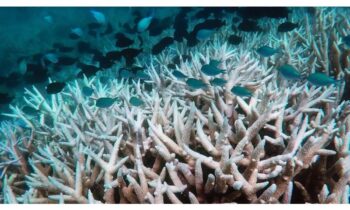Astronaut training is unsurprisingly a tough experience for even the most promising candidates. There are numerous practical and physical challenges, including an extensive two-year curriculum and three different training stages. For those who make it through the rigorous training process, things will come to an abrupt halt if you aren’t made of the right mental muscle. As a 22-year US Navy veteran who served aboard submarines, I can’t help but wonder if the long stints submerged in the ocean as a submariner have given me stronger first-hand mental training than what the current space training programs can offer.
Aspiring NASA astronauts are required to undergo a thorough psychological review to identify those best suited to the demanding world of space travel. But even those who are mentally healthy can only prepare so much for the mental strain that space travel takes. I’ve witnessed firsthand just how extended periods of isolation from the real world, with the same small group of people, can be unmanageable for some.
Almost everyone I’ve worked with has adapted the close-knit environment of a submarine that’s underway, but every once in a while, we do get people who can’t figure out how to cope, to manage their time and not over-stress. Some people just can’t take the isolation from their family and home life – something I understand personally after experiencing the realities of very limited communications with family, something that astronauts and submariners definitely have in common.
When I first started, there was next to no way to get personal correspondence off the boat. Families could deliver a message of approximately 32 words. While staying in touch with family is certainly easier for submariners now, communication is still often screened. In space, not only is communication far more streamlined than it once was, it is also deemed necessary. Some of the mental challenges of a solitary lifestyle aboard a submarine are already being solved in the current space program.
Life aboard such a small vessel can also prove to be challenging to some submariners. I learned space management is king. For those traveling in space or under water, living a minimalist lifestyle free from creature comforts and luxury personal items may seem easy in theory, but in practice can prove challenging. The average enlisted person has about enough storage to bring along two weeks of undergarment changes, three sets of coveralls, two sets of bedding, toiletries (that if planned correctly will last the deployment) and maybe (if planned well) a shoebox of goodies.
Above all, being a submariner puts you in a real-life situation where you have no choice but to experience isolation. You learn to live with just snippets of world news, snippets of what’s happening back home. We really don’t dwell too much on where we are at the moment. We already know we’re stuck in the same sewer pipe as everyone else. In some ways, it’s actually the lack of change that make the mental stress so impactful. It can make you feel stuck, and even the advancement or change of responsibilities doesn’t necessarily mature a person. These are the kinds of internal challenges that makes training future astronaut so difficult here on earth. Unfortunately, the US Submarine Force is one of the last groups to take steps towards solid evaluation and protection of mental health. As of 2012 approximately 30% of submarine force losses were attributed to mental health.
Astronauts and submariners serve different purposes, but there is some crossover that could be extremely valuable to developing solid training programs. While lessons based on theory provide an essential foundation for anyone looking to travel into space, what is far more unpredictable are the mental and personality traits that manifest when faced with such a gargantuan challenge that thriving in space poses. While it’s almost impossible to recreate fully accurate simulation for astronauts here on Earth, life in a submarine gets pretty close.
As we start to see more people travel to the cosmos, including those aboard private space ventures like Blue Origin and Space X, we have the opportunity to look at new ways to train for space flight and how we chose the best future astronauts. One organization that’s looking at the future of space travel and its impact on the future U.S. workforce is Foundation for the Future.
Kris Kollmorgen is a U.S. Navy veteran, who served as a Missile Technician Chief aboard Ohio-class Ballistic Missile submarines. He holds specialties as a Navy Instructor and Nuclear Weapons Specialist. His wife April Kollmorgen currently works at Foundation for the Future.



